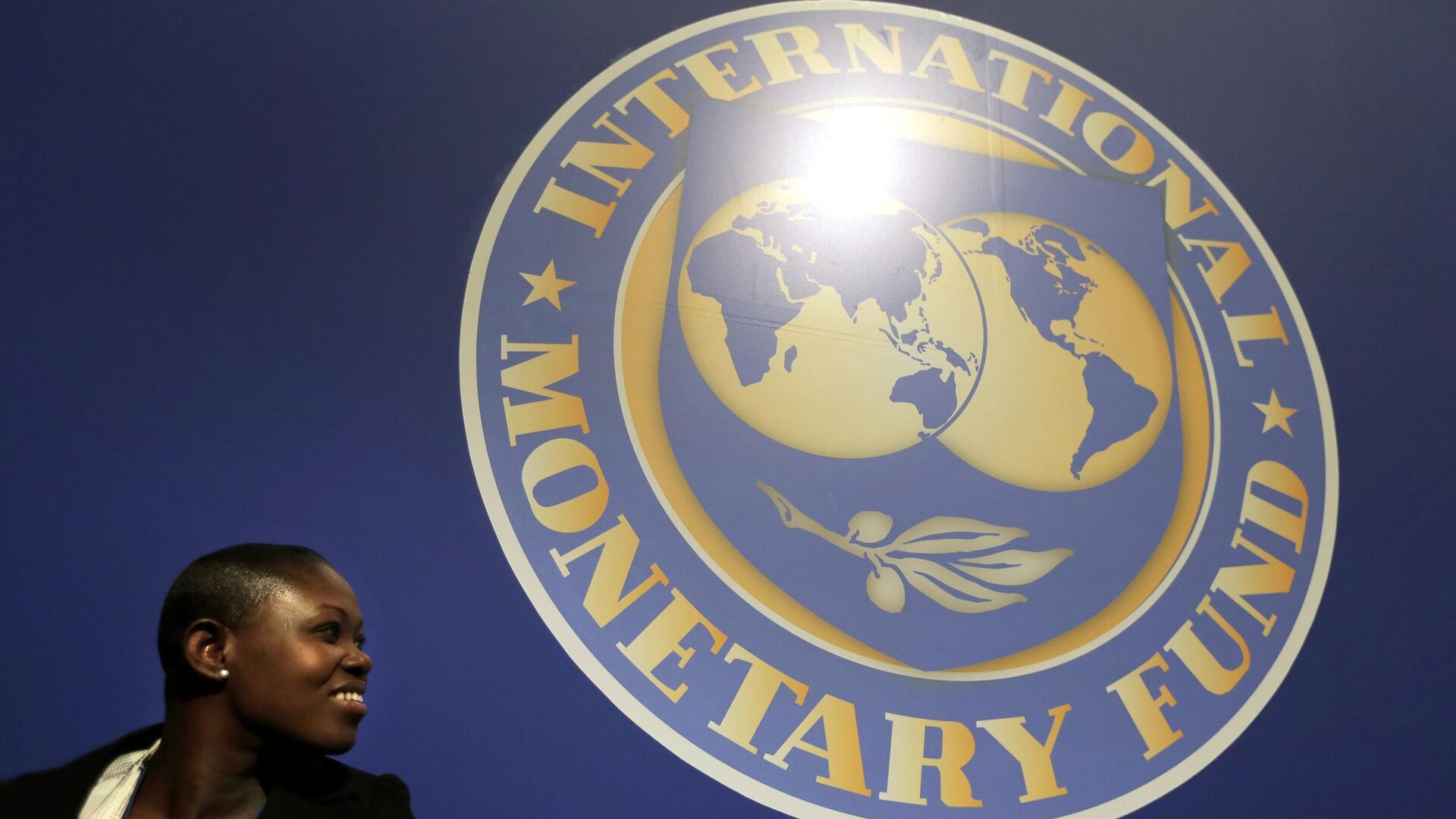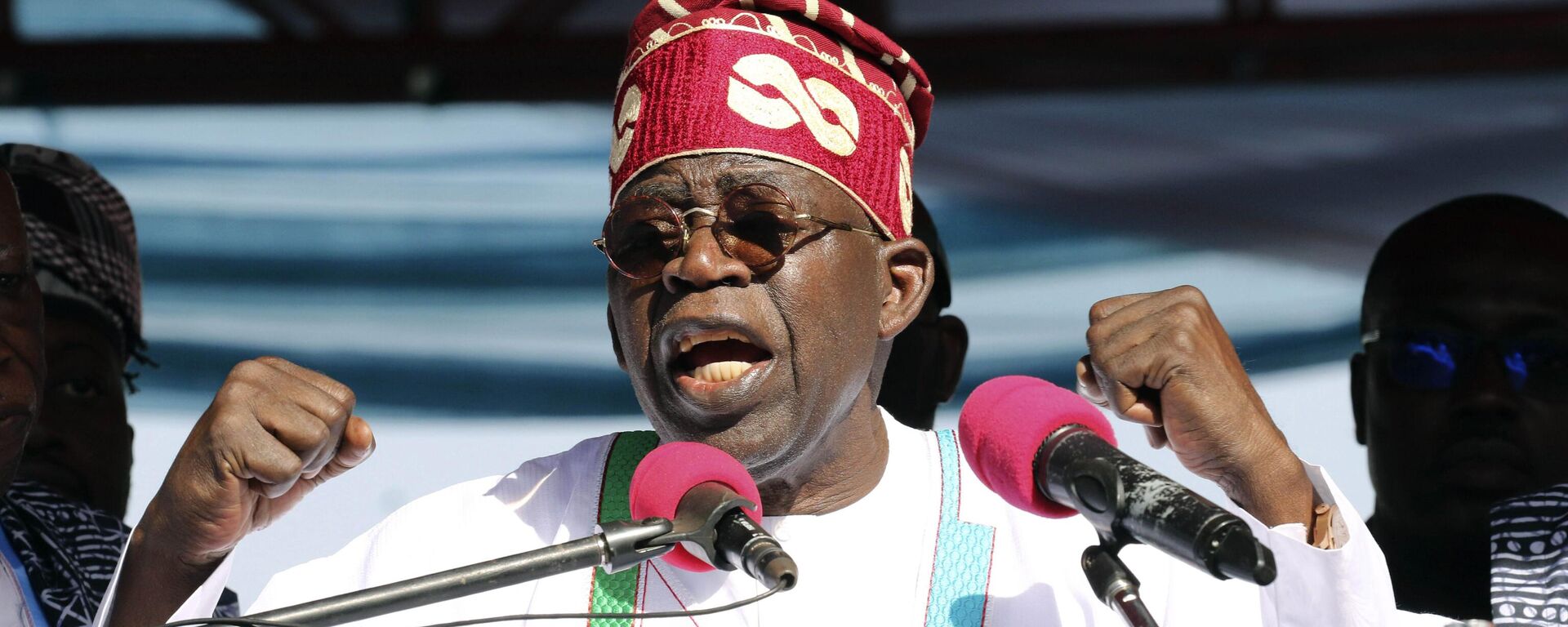https://en.sputniknews.africa/20240510/imf-upholds-projection-for-nigerias-economic-growth-at-33-for-2024-an-increase-from-last-year-1066470017.html
IMF Upholds Projection for Nigeria's Economic Growth at 3.3% for 2024, an Increase From Last Year
IMF Upholds Projection for Nigeria's Economic Growth at 3.3% for 2024, an Increase From Last Year
Sputnik Africa
Last Friday, Fitch, a global rating agency, changed Nigeria's economic outlook from stable to positive, citing the reforms that have been carried out by the... 10.05.2024, Sputnik Africa
2024-05-10T15:47+0200
2024-05-10T15:47+0200
2024-05-10T15:55+0200
sub-saharan africa
nigeria
international monetary fund (imf)
economy
west africa
bola tinubu
reforms
economic growth
https://cdn1.img.sputniknews.africa/img/07e7/04/0c/1058547755_0:0:3000:1688_1920x0_80_0_0_2def1fafcd75db418c5e6d5707a58bdd.jpg
The International Monetary Fund (IMF) upheld on Thursday its projection of a 3.3% growth rate for the economy of Nigeria in 2024, citing the improved performance of the services and commerce sectors.It's a slight increase from last year's 2.9%. The forecast for 2025 is 3%.According to the IMF, the economic forecast for Nigeria remains difficult.The IMF also noted that "with pump prices and tariffs below cost recovery, implicit subsidy costs could increase to 3% of GDP in 2024 from 1% of GDP in 2023."However, the IMF commended the Central Bank of Nigeria (CBN) for its recent decision to increase interest rates in order to control rapidly rising inflation. The IMF also emphasized the need to use data to guide future interest rate adjustments. The IMF has also advised the CBN to increase its foreign exchange reserves. Additionally, the organization suggested that the bank establish a clear and fair system for intervening in the foreign exchange market, with the goal of reducing excessive short-term volatility.Since assuming office around one year ago, President Bola Tinubu has implemented extensive changes. These reforms include reducing expensive petrol and power subsidies, as well as depreciating the naira currency twice in the span of a year to decrease the difference between the official and parallel market exchange rates.
https://en.sputniknews.africa/20240504/nigerias-economic-reforms-spark-optimism-fitch-upgrades-outlook-1066362925.html
nigeria
west africa
Sputnik Africa
feedback@sputniknews.com
+74956456601
MIA „Rossiya Segodnya“
2024
Christina Glazkova
https://cdn1.img.sputniknews.africa/img/07e7/0b/07/1063380906_0:0:673:674_100x100_80_0_0_79628b4d0cd9f29291a57aa13bbf9e7a.jpg
Christina Glazkova
https://cdn1.img.sputniknews.africa/img/07e7/0b/07/1063380906_0:0:673:674_100x100_80_0_0_79628b4d0cd9f29291a57aa13bbf9e7a.jpg
News
en_EN
Sputnik Africa
feedback@sputniknews.com
+74956456601
MIA „Rossiya Segodnya“
Sputnik Africa
feedback@sputniknews.com
+74956456601
MIA „Rossiya Segodnya“
Christina Glazkova
https://cdn1.img.sputniknews.africa/img/07e7/0b/07/1063380906_0:0:673:674_100x100_80_0_0_79628b4d0cd9f29291a57aa13bbf9e7a.jpg
nigeria, international monetary fund (imf), economy, west africa, bola tinubu, reforms, economic growth
nigeria, international monetary fund (imf), economy, west africa, bola tinubu, reforms, economic growth
IMF Upholds Projection for Nigeria's Economic Growth at 3.3% for 2024, an Increase From Last Year
15:47 10.05.2024 (Updated: 15:55 10.05.2024) Christina Glazkova
Writer / Editor
Last Friday, Fitch, a global rating agency, changed Nigeria's economic outlook from stable to positive, citing the reforms that have been carried out by the government of Bola Tinubu.
The International Monetary Fund (IMF)
upheld on Thursday its projection of a 3.3% growth rate for the economy of Nigeria in 2024, citing the improved performance of the services and commerce sectors.
It's a slight increase from last year's 2.9%. The forecast for 2025 is 3%.
According to the IMF, the economic forecast for
Nigeria remains difficult.
"Over the last decade, Nigeria’s growth has just about kept up with population dynamics. Poverty has increased, and food insecurity is rising," the report read.
The IMF also noted that "with pump prices and tariffs below cost recovery, implicit subsidy costs could increase to 3% of GDP in 2024 from 1% of GDP in 2023."
However, the IMF commended the
Central Bank of Nigeria (CBN) for its recent decision to increase interest rates in order to control rapidly rising inflation. The IMF also emphasized the need to use data to guide future interest rate adjustments.
The IMF has also advised the CBN to increase its foreign exchange reserves. Additionally, the organization suggested that the bank establish a clear and fair system for intervening in the
foreign exchange market, with the goal of reducing excessive short-term volatility.
Since assuming office around one year ago, President
Bola Tinubu has implemented extensive changes. These reforms include reducing expensive
petrol and power subsidies, as well as depreciating the naira currency twice in the span of a year to decrease the difference between the official and parallel market exchange rates.



